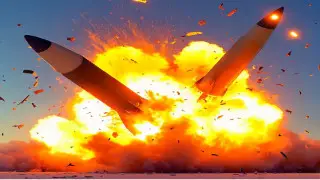
Putin
International News: Russia has emerged as the "Bahubali" of nuclear power amid the escalating Israel-Iran conflict. This nickname, symbolizing unmatched strength, reflects Moscow’s growing influence in the Middle East’s nuclear landscape. While Israel and Iran clash over Tehran’s nuclear ambitions, Russia’s strategic maneuvers have positioned it as a pivotal player, shaping the region’s power dynamics with quiet authority.
Over the past decade, Moscow has constructed eight nuclear power plants, including the Bushehr facility, enhancing Iran’s energy and potential military capabilities. This partnership, sealed through billion-dollar deals, provides Tehran with advanced reactor technology and enriched uranium, bolstering its defiance against Western sanctions. Russia’s role as a key supplier has given it leverage, turning Iran into a nuclear proxy under its shadow.
By aligning with Iran, it counters Western influence, particularly from the U.S. and its allies, including Israel. Moscow’s veto power in the UN Security Council further shields Iran from stringent resolutions, allowing the program to flourish. Simultaneously, Russia maintains a delicate balance, selling arms to both sides—S-400 systems to Iran and advanced defenses to Israel—ensuring its influence remains unchallenged.
The international community watches with unease. The G7’s recent condemnation of Iran’s nuclear pursuits indirectly targets Russia’s role, yet Moscow remains unfazed. Israel views Russia’s support for Iran as a direct threat, fueling preemptive strikes, while Iran leans on Russian backing to resist. Analysts predict this could escalate into a broader proxy war, with Russia as the silent orchestrator.
Russia’s nuclear dominance, earned through alliances and infrastructure, cements its "Bahubali" status. This power play not only fuels the Israel-Iran conflict but also redefines global nuclear politics, demanding a careful watch on Moscow’s next move.













Copyright © 2025 Top Indian News
